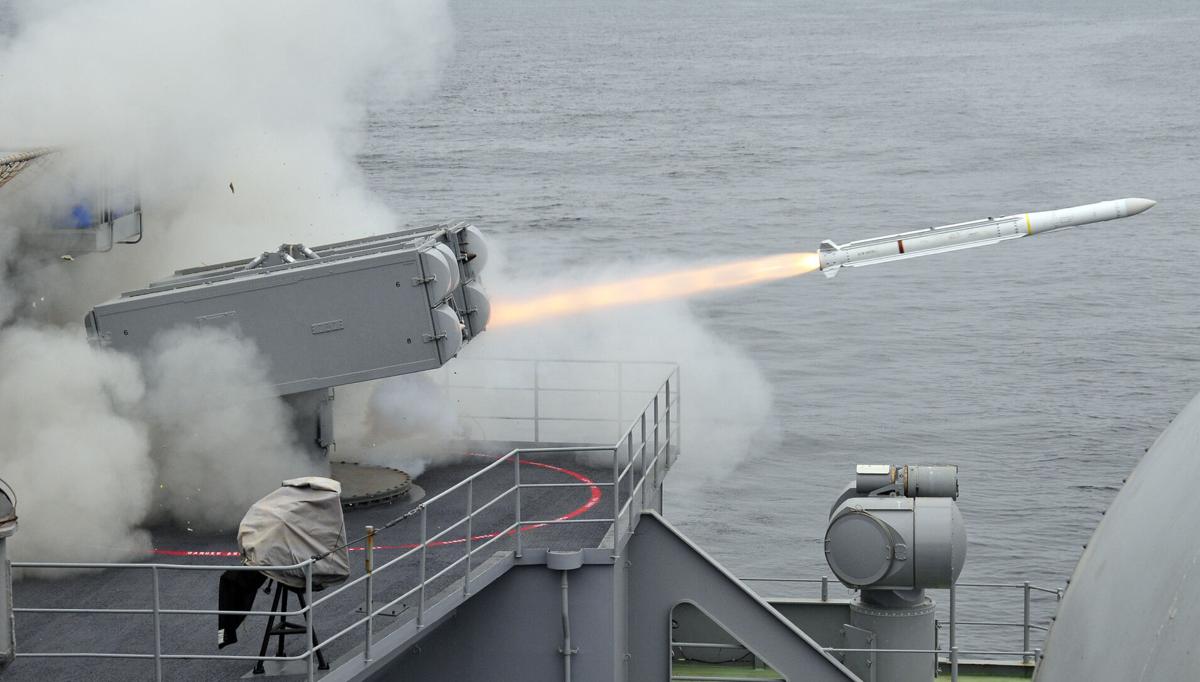Tucson-based Raytheon Missiles & Defense was awarded nearly $400 million in Pentagon contracts for an advanced version of a ship-defense missile and a new, all-weather guided bomb as the year drew to a close.
The Navy recently awarded Raytheon a $269 million contract to produce the newest Evolved SeaSparrow Missile (ESSM), a front-line ship defense weapon, for the U.S. and about a dozen allied nations through March 2025.
The contract for the upgraded ESSM Block 2 missile is part of a $1.3 billion, full-rate production contract for the new variant that Raytheon was awarded in September, when $358 million was initially obligated.
The Navy says the ESSM Block 2 is a critical weapon to defend ships against a new generation of fast, low-flying and highly maneuverable cruise missiles.
The Navy has obligated about $108 million of its own funding for its missiles, while allies including Australia, Norway, Canada, Denmark, Germany, Greece, Spain and Turkey will be spending a total of about $160 million for the new ESSMs, according to a Pentagon contract notice.
About half of the work under the the most recent contract will be performed in Tucson, with other work at various sites in the U.S. and in customer nations.
The number of ESSMs ordered under the contract was not disclosed, but the Navy plans to buy 108 of the missiles in fiscal 2022, according to Navy budget documents.
Meanwhile, the Pentagon announced that Raytheon had won a $92 million contract to produce the GBU-53/B StormBreaker, a small-diameter precision glide bomb for the Air Force and a $31 million contract to make them for the Navy.
Formerly known as the Small Diameter Bomb II, the roughly 6-foot-long StormBreaker carries a 100-pound warhead and can attack mobile targets in adverse weather from extended ranges with a combination of sensors and data links.
Arizona Daily Star reporter David Wichner's top stories of 2021
 |
We are sharing Arizona Daily Star reporters' and photographers' favorite work from 2021.
Reporter David Wichner has covered business for more than 35 years and joined the Star in 1997, focusing on technology, defense, utilities and consumer issues.
He enjoys telling readers about the latest University of Arizona technologies and the people trying to bring them to market, following Raytheon and the military-industrial complex and keeping readers abreast of vital issues facing the community including the state’s shift to renewable energy and the future of Davis-Monthan Air Force Base.
Check out some of his work from 2021:
Historic Tucson neighborhoods opposed to overhead lines and the city want the Kino-DeMoss Petrie line put underground, but TEP says it's too costly.
Senate moves to block the retirement of A-10s, a key mission at Tucson's Davis-Monthan Air Force Base, pausing other plans for the base.
A $2 billion contract for the Long-Range Standoff Weapon may grow to more than $10 billion over the next decade.
After killing a proposed mandate for 100% carbon-free power by 2050, the Arizona Corporation Commission voted to reach that goal by 2070.
Tucson Electric Power shutoff about 2,200 customers for non-payment in March, but summer disconnection ban kicks in this week.










